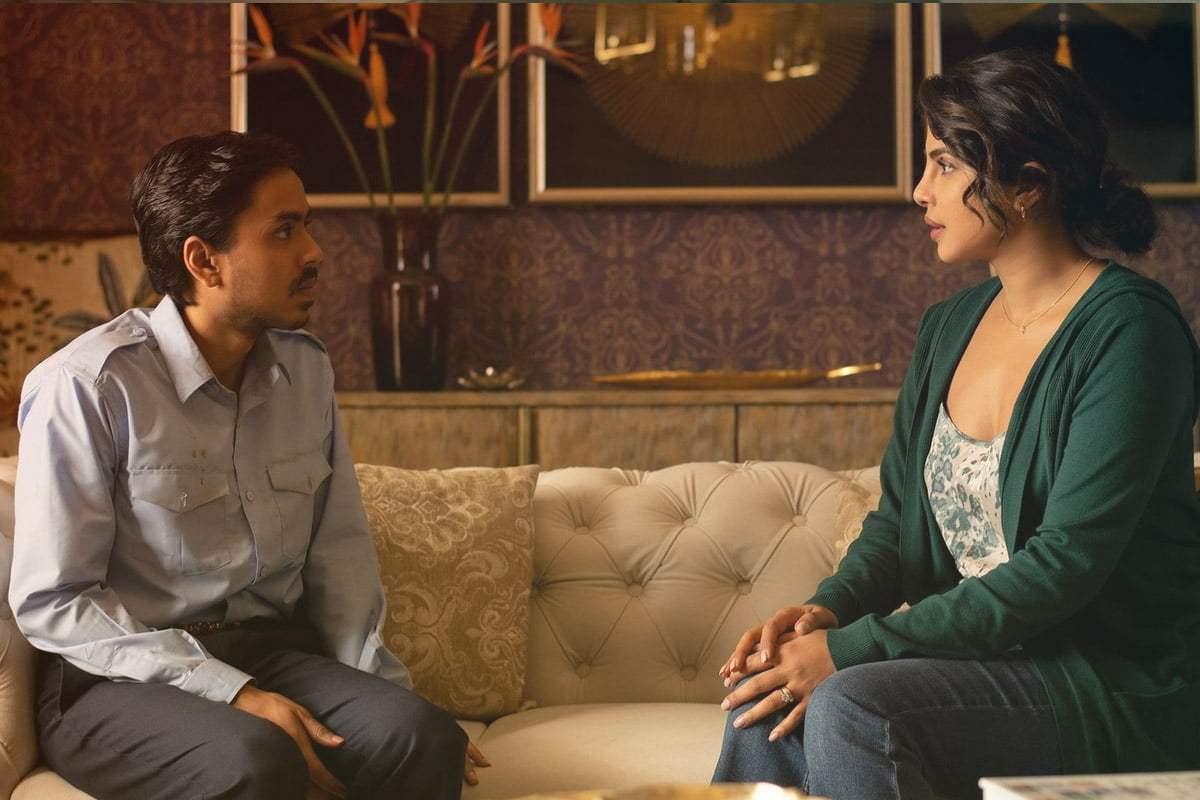
The cinema world is still reeling from Bong Joon-ho’s masterpiece Parasite, which continues to draw comparisons with every film depicting the class struggle. The White Tiger is no different, but such comparisons sell The White Tiger short. The film is a masterpiece on its own, as a psychological exploration of Indian poverty.
The White Tiger is based on a book of the same name, and narrates its story as a series of autobiographical letters to Chinese premier Wen Jiabao from servant-turned-entrepreneur Balram Halwai (Adarsh Gourav). The film provides an intimate perspective on subservience and trust, at the cost of trivializing the struggle of India’s poor.
The View from the Chicken Coop
The White Tiger opens with its two central metaphors – the chicken coop and the eponymous white tiger. Halwai claims that the vast majority of India’s poor are chickens for slaughter. They’re trapped in a figurative coop, knowing that only servitude and death awaits them, but never considering escape an option. Halwai considers himself a white tiger, “a rare beast born only once in a generation” and destined to break free of the coop.
Declaring these themes early allows the film to play them off each other. In elementary school, Halwai’s family forces him to give up his academic scholarship to a prestigious Delhi school so he can work in a tea shop for pennies. His responsibility and place is to grind for the family and bear his share of the pain, his matriarch grandmother insists. Even when given an opportunity to escape, his poor family resigns itself to the chicken coop.
Halwai isn’t immune from the coop mentality either; he dedicates his youth to serving a “worthy” master. He finds one in Ashok Sharma (Rajkummar Rao), an American-educated Indian who fronts Western ideals of equality. After convincing his grandmother, who protests his desire to move above his station, he begins to live with Sharma’s family and wife Pinky (Priyanka Chopra Jonas).

Subservience and Trust
Halwai narrates The White Tiger as a recollection of his past. The film uses this to create two contrasting personas: the subservient Halwai of yesterday, and the confident Halwai of today. Having one tell the story of the other makes viewers uneasy; something drastic must have triggered the simple servant to become the cutthroat businessman.
The servant Halwai is trustworthiness personified, to the point where he hates himself for it. When Sharma commits manslaughter, Halwai respectfully takes the fall for his master’s charges, while cursing himself “for not even considering that he had an option otherwise”. The White Tiger continues to show trustworthiness as a weakness—the film’s rich achieve their power through bribery and corruption, while the poor religiously believe in honest work. Both of these are extremes. Even the hero of the poor, an elected official dubbed “The Great Socialist”, regularly extorts rich businessmen for bribes to deregulate the market for them. This delivers pointed critique of Indian politicians touting socialism to win votes from the poor, but deepening the wealth divide for personal benefit when elected. To prove this point, Halwai’s family lock into their generational tea-stall servitude and shun better-paying job opportunities. They revere and re-elect The Great Socialist in hopes that her promises will break them free.
The White Tiger argues that subservience breeds trust in the oppressors, and tightening the chains of poverty.
A One-Sided Take on Poverty
In his letters to the Chinese premier, Halwai maintains that subservience is embedded deeply in the underclass’s psyche, and is a uniquely Indian problem. The poor are bred as mindless livestock, and Halwai escapes because he’s the once-in-a-generation predator. Halwai’s viewpoint argues that India is poor because it is fixated on poverty and the holiness of servitude instead of cheating like the rich, which contributes to hereditary poverty. “Do we loathe our masters behind a facade of love, or do we love our masters behind a facade of loathing?” Halwai asks, lamenting the pride his family has for their place beneath the rich.
This trivializes the initiative that many poor Indians show, only to be held down by opportunity and culturally-induced educational inequalities. Furthermore, poverty instills subservience, which isn’t a uniquely Indian problem, as Halwai claims. Obviously, a complex institutional argument isn’t the point of a film like The White Tiger, but it ignores the powerful effect that structural factors like infrastructure policy play in opportunity creation for the poor. The sensationalization of Halwai’s obsession and sacrifices being the only way out of poverty certainly makes for a more emotionally-charged story. Perhaps that’s why the film resonated strongly outside of India while garnering mixed opinions from India’s poor; it glosses over Indian political and caste idiosyncrasies to cater to a global narrative.
While more sociopolitical nuance could benefit the narrative (okay, we believe that about almost all films), The White Tiger still stands out as a unique take at Indian poverty. It provides pointed social critique through a dark and riveting story, brought to life by an intricate performance by newcomer Adarsh Gourav as Balram Halwai. The film resembles the animal it describes: a rare spectacle, and something the world could use more of.
• • •
The White Tiger is currently streaming on Netflix.
The White Tiger —United States. Dialog in English, Hindi. Directed by Ramin Bahrani. Running time 2 hr 5 min. First released January 22, 2021. Starring Adarsh Gourav, Priyanka Chopra, Rajkummar Rao.
